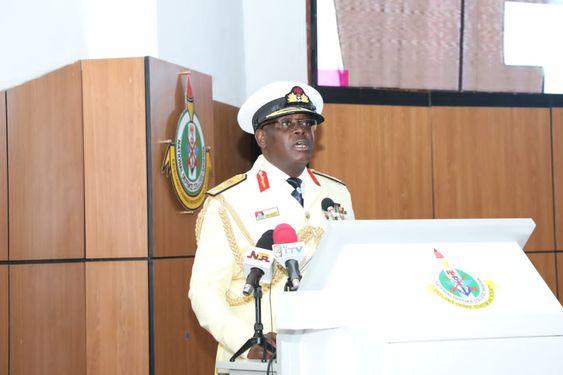Security & Crime
2,750 students graduate from the Defence College in 31 years – Commandant

Rear Admiral Olumuyiwa Olotu, the NDC’s commandant, reports that in its 31-year history, the college has graduated 2,750 students, including 2,466 Nigerians and 296 officers from other nations.
Olotu made this statement during the opening lecture of NDC Course 32, “Strengthening National Unity for Security and Development in Nigeria,” which took place on Friday in Abuja.
According to the commandant, the college has taught several senior military officers, police and other security agencies, strategic ministries of government, as well as senior military officers from friendly nations, since it was founded in 1992.
According to him, the college’s primary goal is to get its students ready for the best performance and appointments at the strategic level of government.
Olotu reported that 108 people took part in the course 32, including 68 senior officers from the Nigerian Armed Forces, six from the Nigerian Police Force, and 19 senior officers from other security agencies.
Others came from important government departments, ministries, and organisations.
The Republic of Benin, Botswana, Brazil, Cote d’Ivoire, Gambia, Ghana, Germany, India, Liberia, and Mali were among the 15 international participants in the course who came from 15 friendly nations, he continued.
Senegal, Sierra Leone, South Africa, Tanzania, Zambia, and Zimbabwe are among the others.
Olotu welcomed the participants and advised them to make the most of the chance to develop close friendships with their peers as well as to get ready for more important roles in their respective services and nations.
He asserts that there is no question that democracy is slowly but steadily being entrenched in Nigeria, as it is in most other parts of the world, and that Nigerians are largely experiencing the benefits of democracy.
“However, sectoral inequalities continue to exist, impeding the government’s efforts to promote growth and national security.
“Issues of security and development will always be compromised in the absence of national cohesiveness, and this will present a severe challenge for government at all levels.
This highlights the importance of the issues chosen for the first lecture, “Strengthening National Unity for Security and Development in Nigeria,” he stated.
The commandant claimed that in addition to the institution’s offered strategic courses, the Centre for Strategic Research and Studies of the college offered other professional training programmes.
He explained that it would be up to the participants to take on a variety of conceptual, hypothetical, actual, and simulated strategic level difficulties for which there were no pre-made solutions.
He asserts that the key is for students to use their creativity, and that in order to come up with solutions for today’s problems, they would need to engage in significant research and critical thinking.
Additionally, you will be asked to submit information on a range of related topics, including international policies, strategies, operations, resource management, and subset criteria.
These are contained in several packages that have been produced for you and are broken down into nine modules.
It is noteworthy that participants will receive training in a variety of subject areas, including the state and socio-political environment, in keeping with the complex and multifaceted nature of the security and defence imperative.
He said, “These are intended to develop the art and science of statecraft and strategy for effective management of national security and defence.” (NAN)
